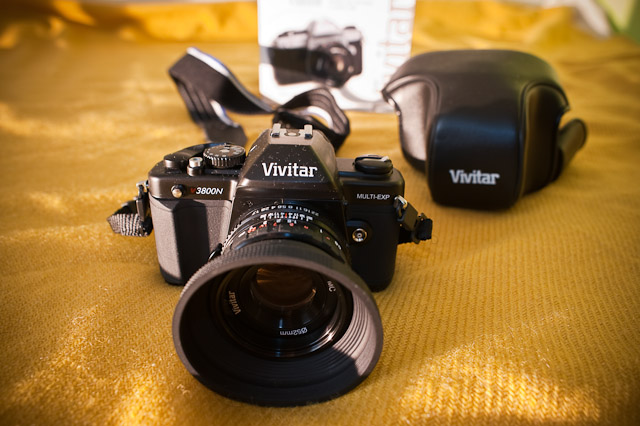The popularity of documentaries among Gen Z continues to rise. Photo courtesy of WIRED.
ABIGAIL OAKLEY | STAFF REPORTER | aloakley@butler.edu
In the past few years, the popularity of documentaries has been skyrocketing. The demand has never been higher and the genre grows bigger every year. This growth is especially prevalent among younger viewers, which may shock some audiences. With the plethora of options available at the press of a button, why is Gen Z so drawn to documentaries?
Some people attribute this new interest to streaming services. More documentaries are available than ever before, so they are simply easier to find. If someone goes to Netflix, a new documentary is likely being advertised. There is an entire documentary section that people can look through. The documentary genre has exploded since streaming services made them more accessible. It is one of the fastest growing genres of the past couple years, with demand for documentaries growing 142% from 2018 to 2021. It has never been easier to binge this content, and audiences can’t seem to get enough.
The appeal of documentaries is somewhat straightforward. They fulfill the human desire to learn and understand the world. This desire is what drove documentaries to fruition in the first place. Ania Spyra, an associate professor in the English department, said that she enjoys this aspect of documentaries.
“Everyone’s curious,” Spyra said. “Everyone wants to learn. It’s my optimistic belief as an educator that learning information is fun, and knowing things is a joyful way to spend your time.”
The availability of media is kicking that curiosity into high gear for younger generations. For those who have grown up with answers to questions easily accessible and an endless supply of media to consume, documentaries are just another facet of readily available knowledge. Through apps and websites like TikTok and YouTube, highly individualized, niche content has become the new norm. The niche content on these platforms serve a purpose similar to that of documentaries. It seems that younger audiences are craving content that fulfills their curiosity.
Documentaries are also becoming increasingly niche. If someone is interested in a topic, they can likely go to Netflix and find at least one documentary to dive deeper. Since younger generations are accustomed to this type of availability, they are more likely to seek it out.
Aidan Geleott, a sophomore education major, said that he thinks Generation Z is more media-oriented than generations past.
“We like to be very constantly stimulated,” Geleott said. “Having TikTok and other media as such a regular part of our lives, we’re gonna search for that in a lot of ways. Most people have streaming services where they can find that with documentaries. I also feel like our generation is pretty smart, and we want to learn about things.”
One popular documentary genre that is attracting younger viewers is the musician documentary. It seems every music artist from Taylor Swift to Beyoncé to Shawn Mendes has at least one documentary. These documentaries provide audiences with a closer look at the artist. Taylor Swift was praised for her vulnerability in her documentary “Miss Americana,” and Beyoncé was lauded for shedding light on what it means to be a Black woman in the music industry in her documentary “Homecoming: A Film by Beyoncé.” Musicians can use these documentaries to share more about themselves beyond their music, and fans are eating it up.
“As a society we crave pop culture,” Geleott said. “We are inherently kind of nosy and want to know more about each other, especially famous people.”
However, with the rapidly growing demand for documentaries, some concerns have arisen. One of the most popular documentary subsections is “true crime.” True crime is often more narrative focused and contains a lot of speculation. Elevating true crime to the documentary genre has some people concerned. True crime documentary shows such as Netflix’s “Making a Murderer” or HBO’s “The Jinx” have been accused of exploiting the subject material. Documentaries and documentary TV shows such as these may sensationalize the events. This can not only be offensive to the real people involved, but it can also spread misinformation.
Trust in traditional news sources has dropped to a record low, with Gallup reporting only 7% of Americans identifying a great deal of trust in media. With so little trust in traditional media, like cable news and newspapers, people are looking to alternatives – like documentaries – for objective information. This makes it all the more important for those alternative sources to be properly vetted and present facts with limited subjectivity. It is also important for audiences to remember that documentaries are presenting a narrative and a perspective, no matter how trustworthy they may seem to be.
Ann Savage, a professor in the critical communications and media studies department, recommended caution when looking at any media sources.
“Always [watch documentaries] with a grain of salt,” Savage said. “You’re never getting the full story. You always have to remember that and seek out other sources.”
Despite the inherent bias in the genre, many people are excited about the revival of documentaries. IndieWire has even referred to this revival as giving documentaries “a new lease on life.” As content continues to grow exponentially, the documentary genre will undoubtedly grow and evolve with it. There is no way of knowing how these changes will impact the culture at large. However, the data shows one thing. There has never been a more exciting, or contentious, time for the industry.



